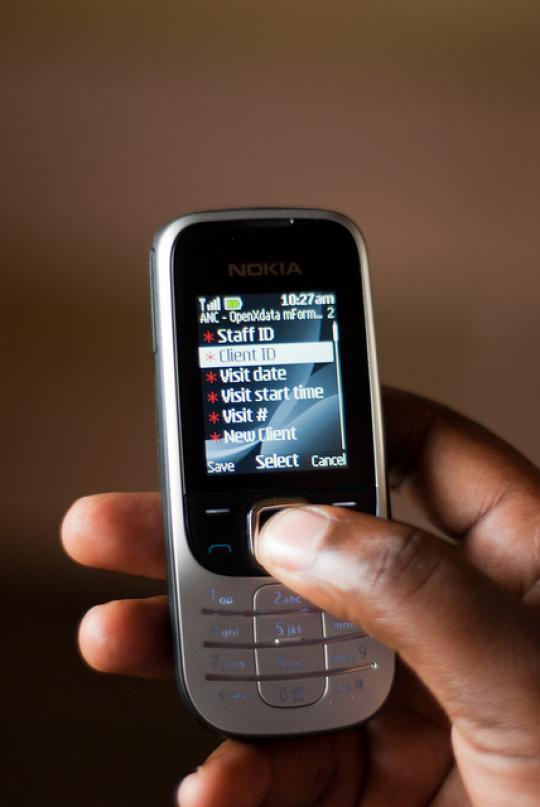Start-up eHealth innovations are popping up all over in Africa, thus providing a glimpse of how ICTs can transform the delivery and governance of health services in the region. Many of these pilots show promise, but their rapid growth also poses challenges. At an eHealth conference held in Nairobi in May and co-organized by the World Bank, health professionals and development partners discussed how to identify the best of these evolving tools and bring them to scale.
Zambia is an example of a country where eHealth start-ups have developed quiet fast. One innovation, SmartCare, offers a touch screen Graphical User Interface (GUI) to minimize the learning curve and enable rapid data entry by clinicians, and the Electronic Health Record (EHR) is copied to smart cards for clients to “own” permanently addressing broadband costs and infrastructure failures. SmartCare enables delivery of cost-effective, confidential, and quality health care for everyone, everywhere, every time, by improving health records and related Health Information Systems.
Another interesting tool called U-Report, is used in Uganda to capture citizen feedback on development issues through mobile phone-based data collection. With a membership list of over 237,885, the service has great potential to enhance citizen engagement and government accountability, and to improve health service delivery. And in Zambia (Zambia U-report), it’s an innovative SMS platform designed by the National AIDS Council and UNICEF to accelerate HIV response for adolescents and young people towards an HIV-free generation in Zambia.
While such technologies are exciting, and they seem intuitively useful and have high potential for impact, we still lack empirical evidence that they improve the efficiency of delivery of health services. So, concerned institutions like the World Bank are investing and evaluating some of these experiments. We also need to ensure that these small pilot projects are designed in such a way that they can inform broader transformations in the health system in the country, instead of remaining as small islands of excellence in districts or regions.
Since many countries are developing their own national eHealth strategies, we need to make sure that the wide array of eHealth applications can “speak” to each other (that is, they are inter-operable), and that they are designed as plug-and-play applications with a common platform.
How can countries scale up these types of innovations? What can the World Health Organization, World Bank and even other key organisations and companies do to support this process? Should we support an overall systemic fix and a common platform, with simple plug-and-play “apps” for different diseases such as AIDS, Malaria, TB, Cervical Cancer, etc and issues ( Health Information Systems, supply of drugs), or should we encourage countries to invest in different platforms for different diseases or problems?
When it comes to ICTs and health, the developed world has not always made the best choices. In the United States of America, for example, competing commercial electronic health record programs mean that even hospitals within the same city cannot smoothly transfer patient data. Perhaps ICTs and eHealth can be one area where developing countries can learn from the mistakes of developed countries.
If ICTs are applied strategically in a way that they scale cost-effectively, surly they could be as transformational in health as they have been in finance in Kenya, for example, where many people pay electricity bills and transfer money via mobile phones (through the mPesa program) instead of going to the bank.
As one of the government partners for World Bank in Kenya said, “The greatest challenge for us is change.” This refers not to the technology development or training or budgeting, but to the actual ability to change mindsets that may not be accustomed to an ICT solution, and to engage a younger generation for whom “tech-savvy” is an inherent quality.
Are we up for the challenge?


Informative!!
We need to apply what has been suggested here. In this day and age, this is the way to go….